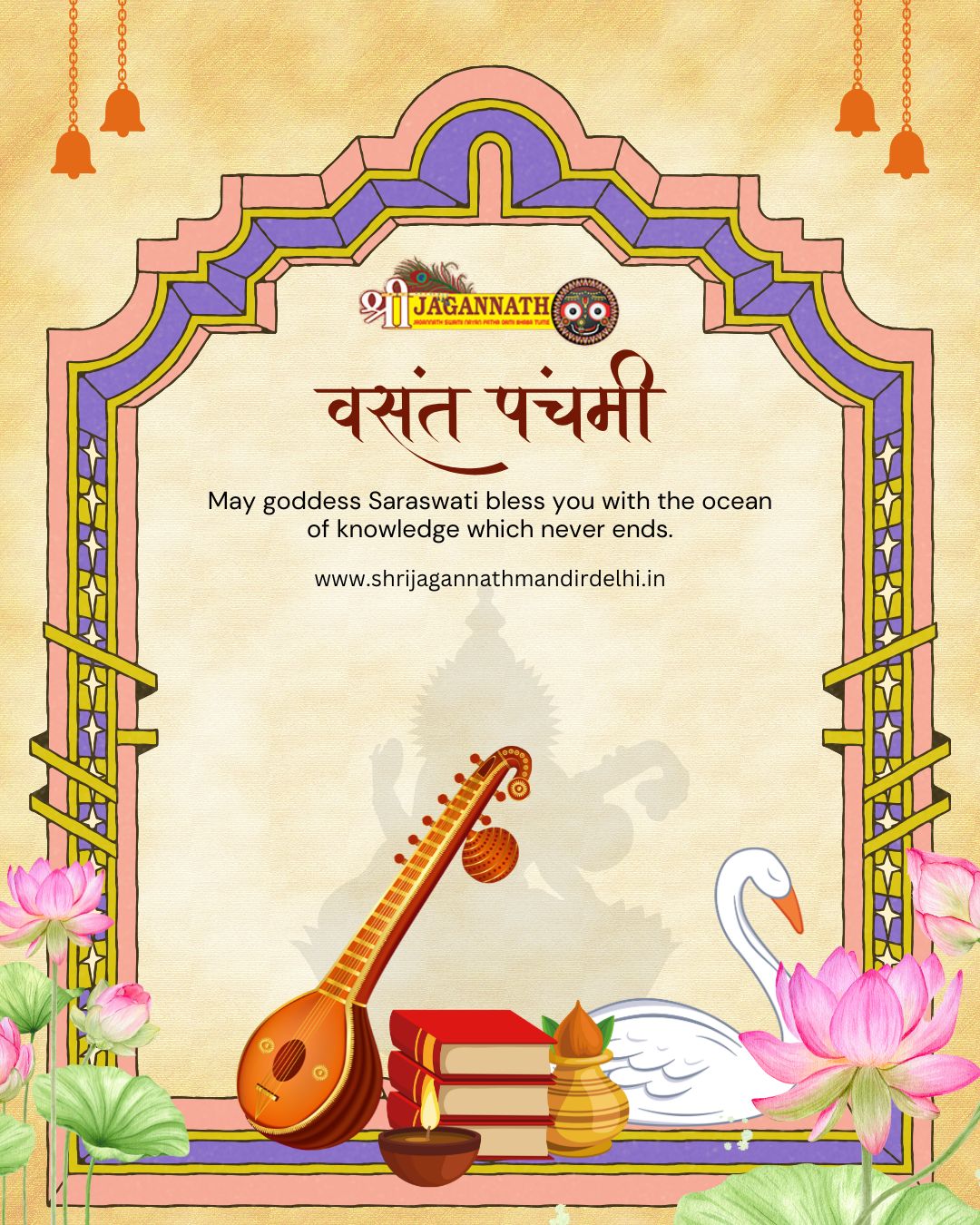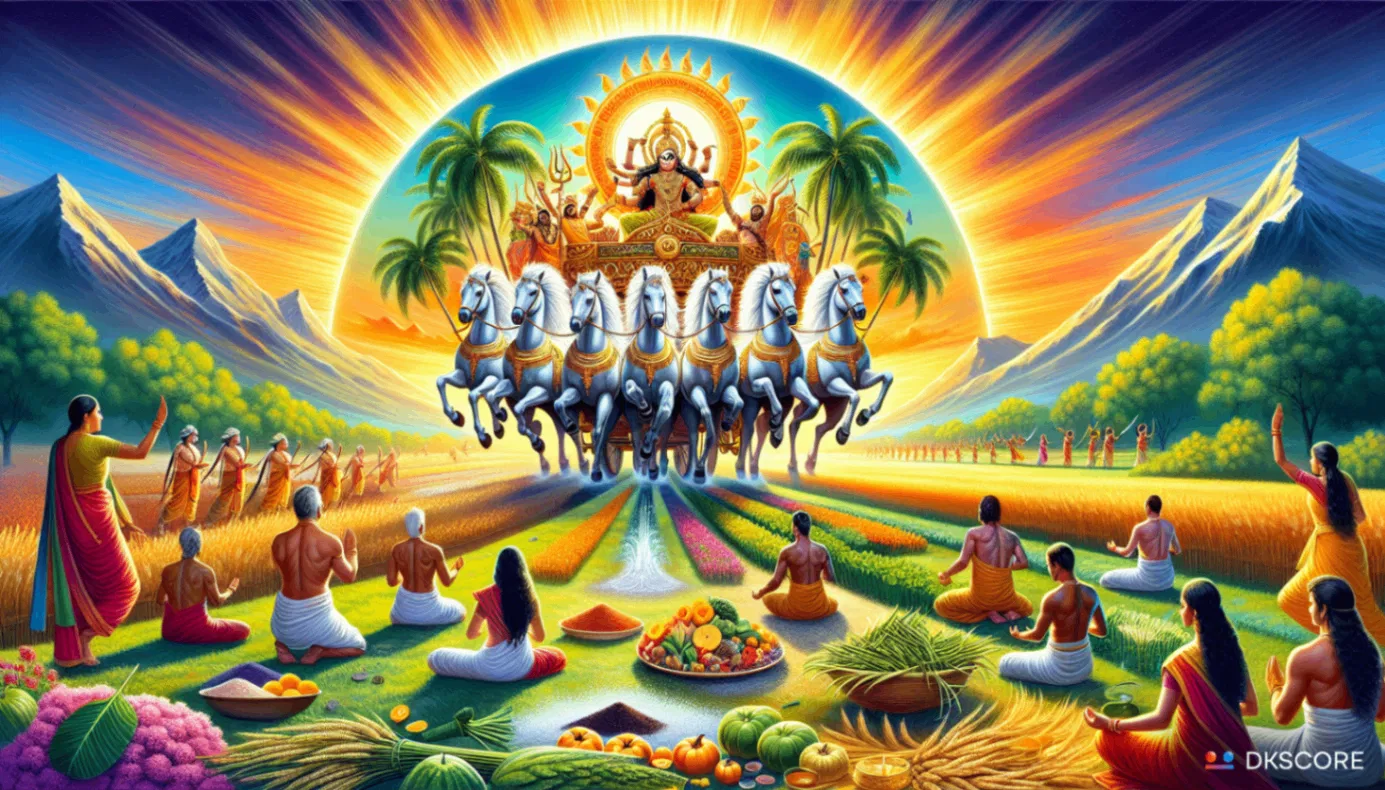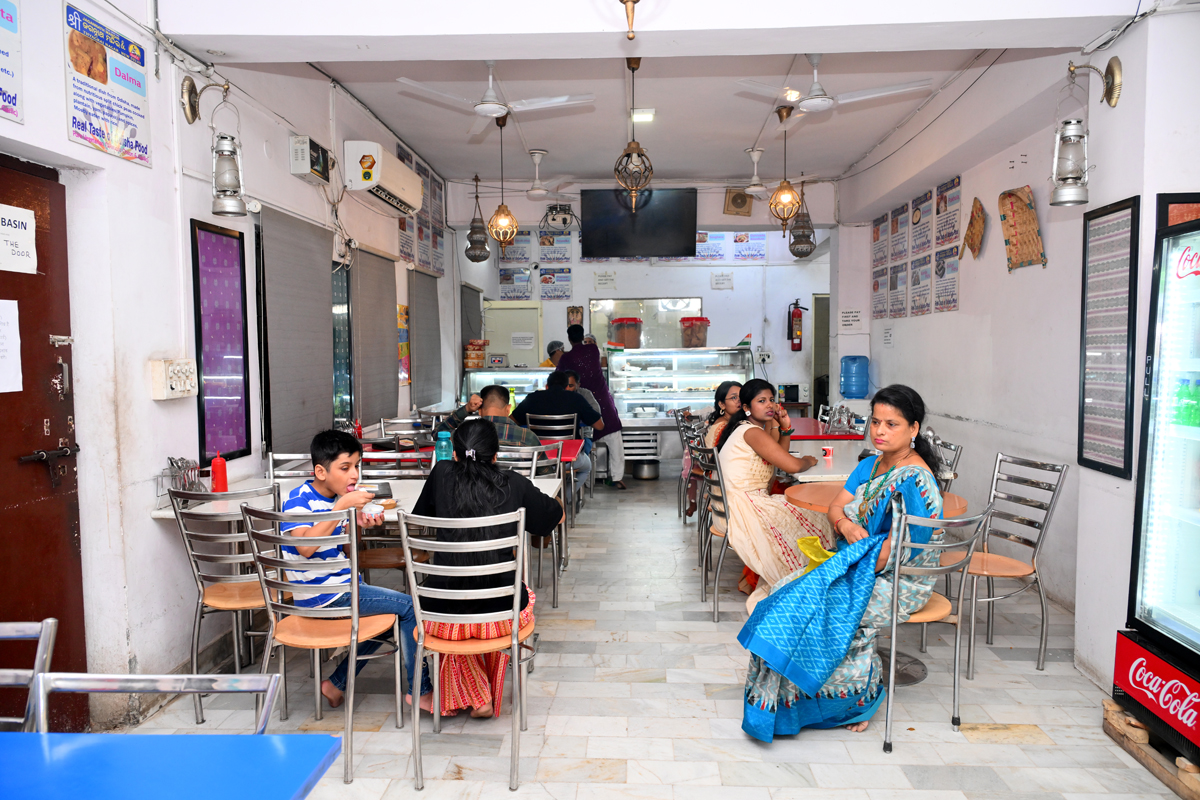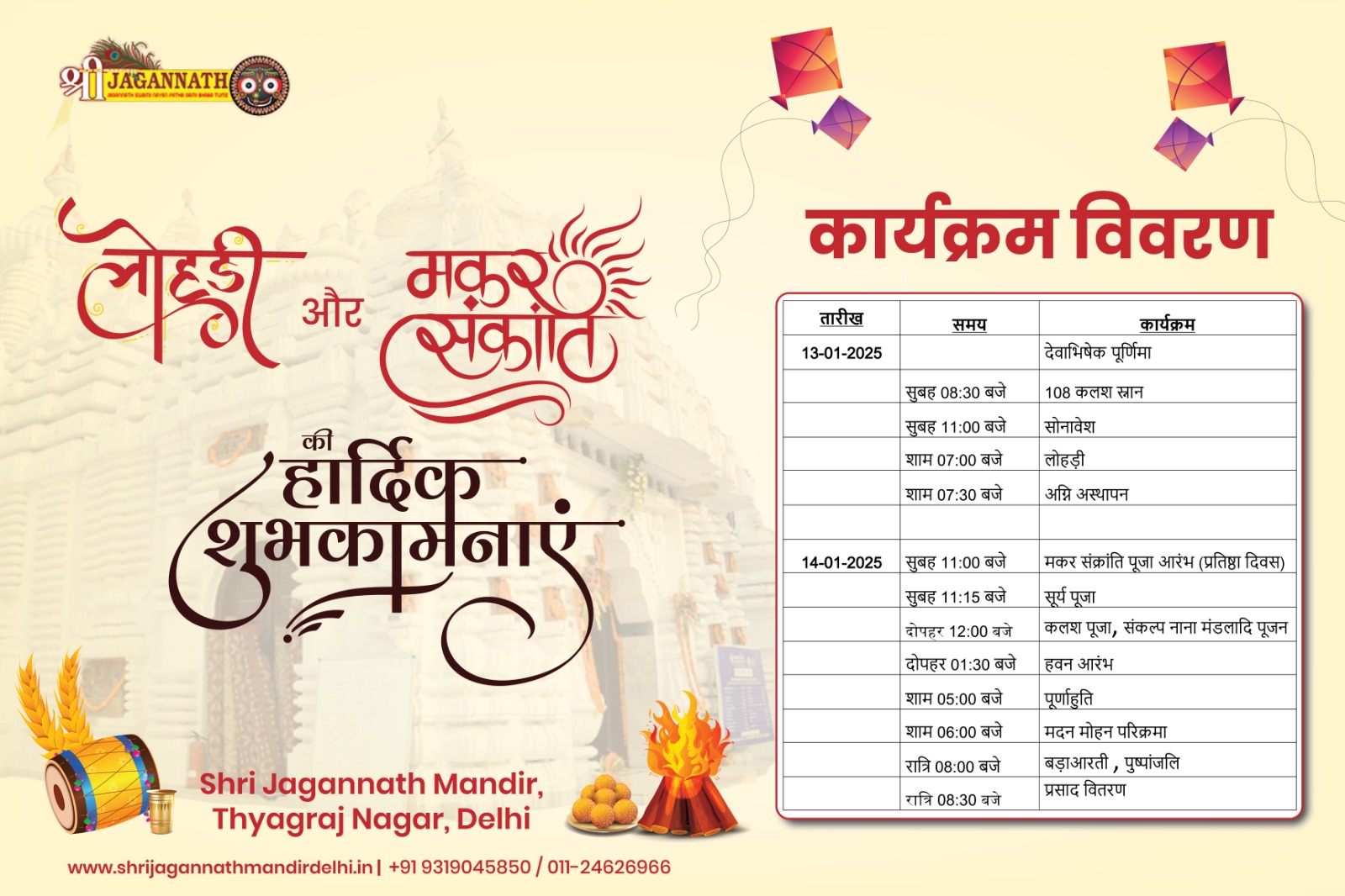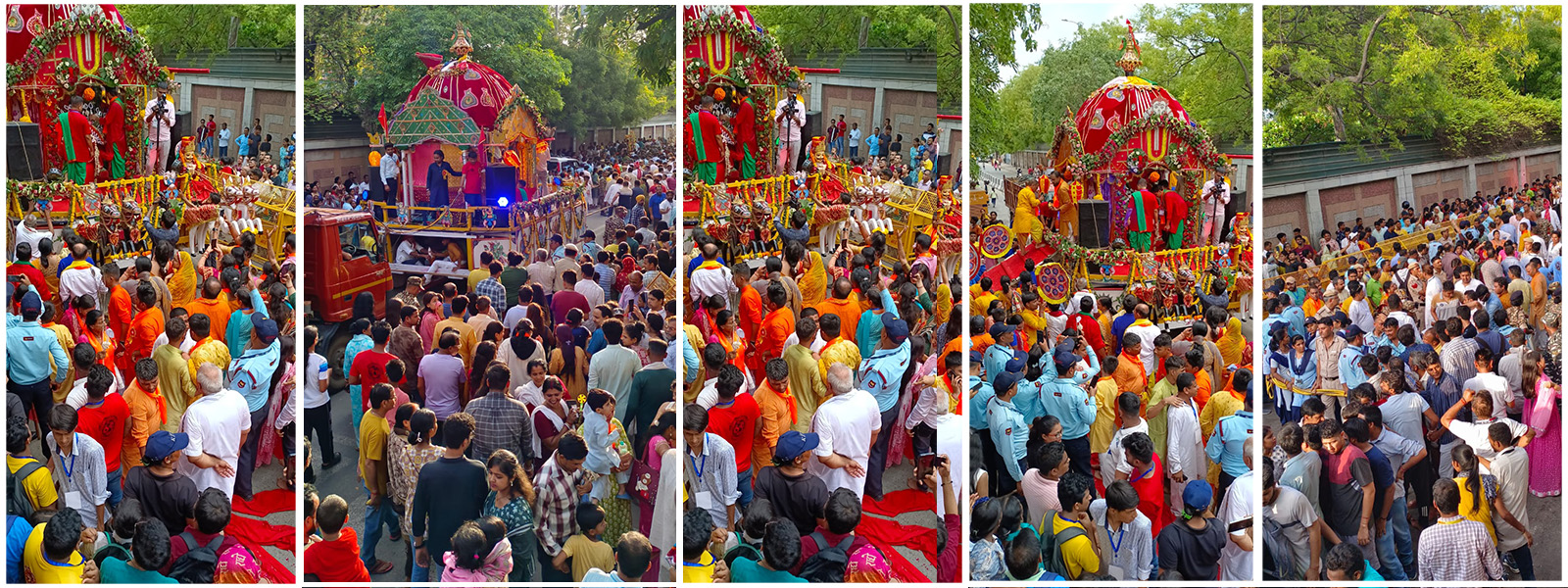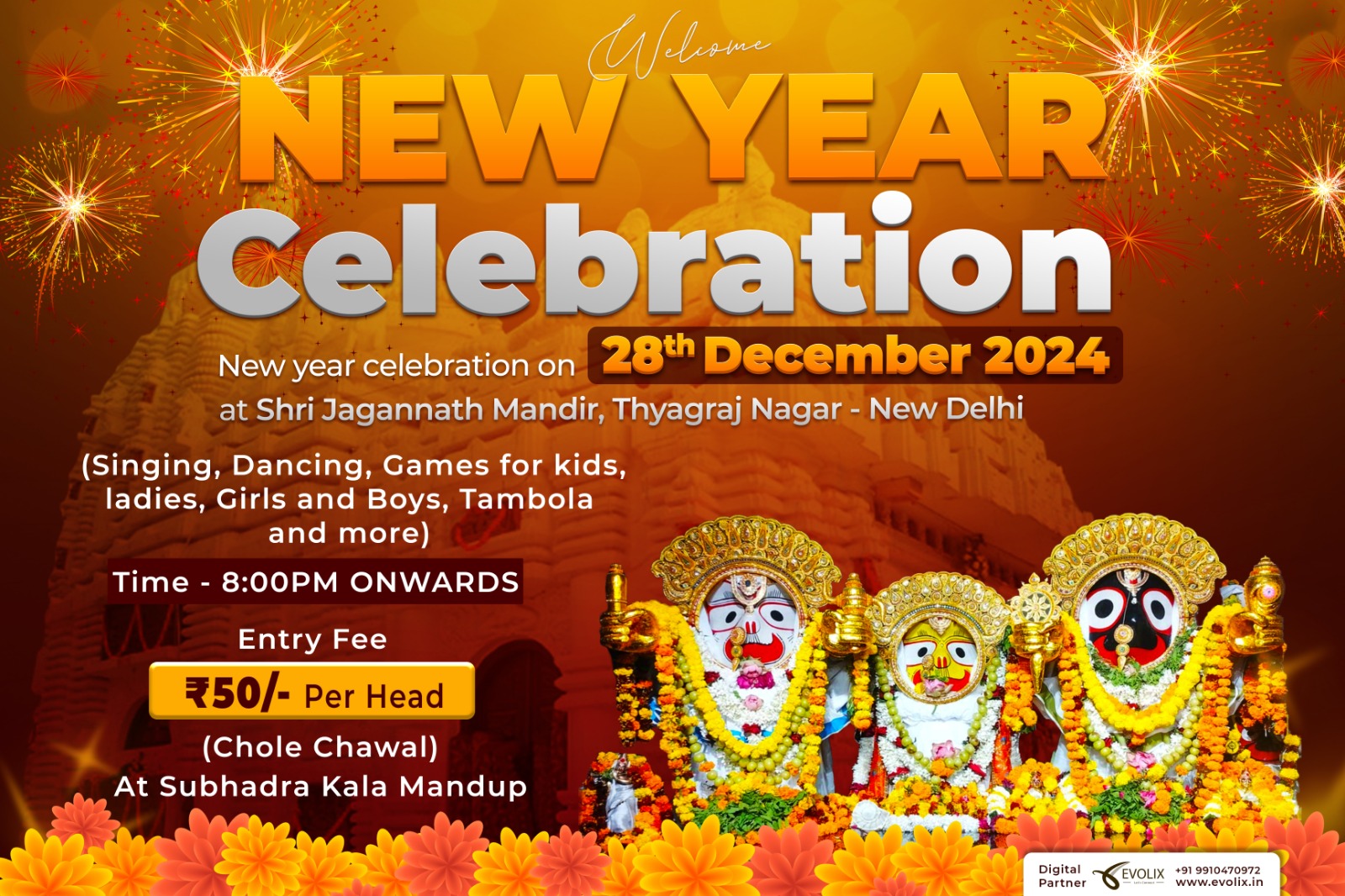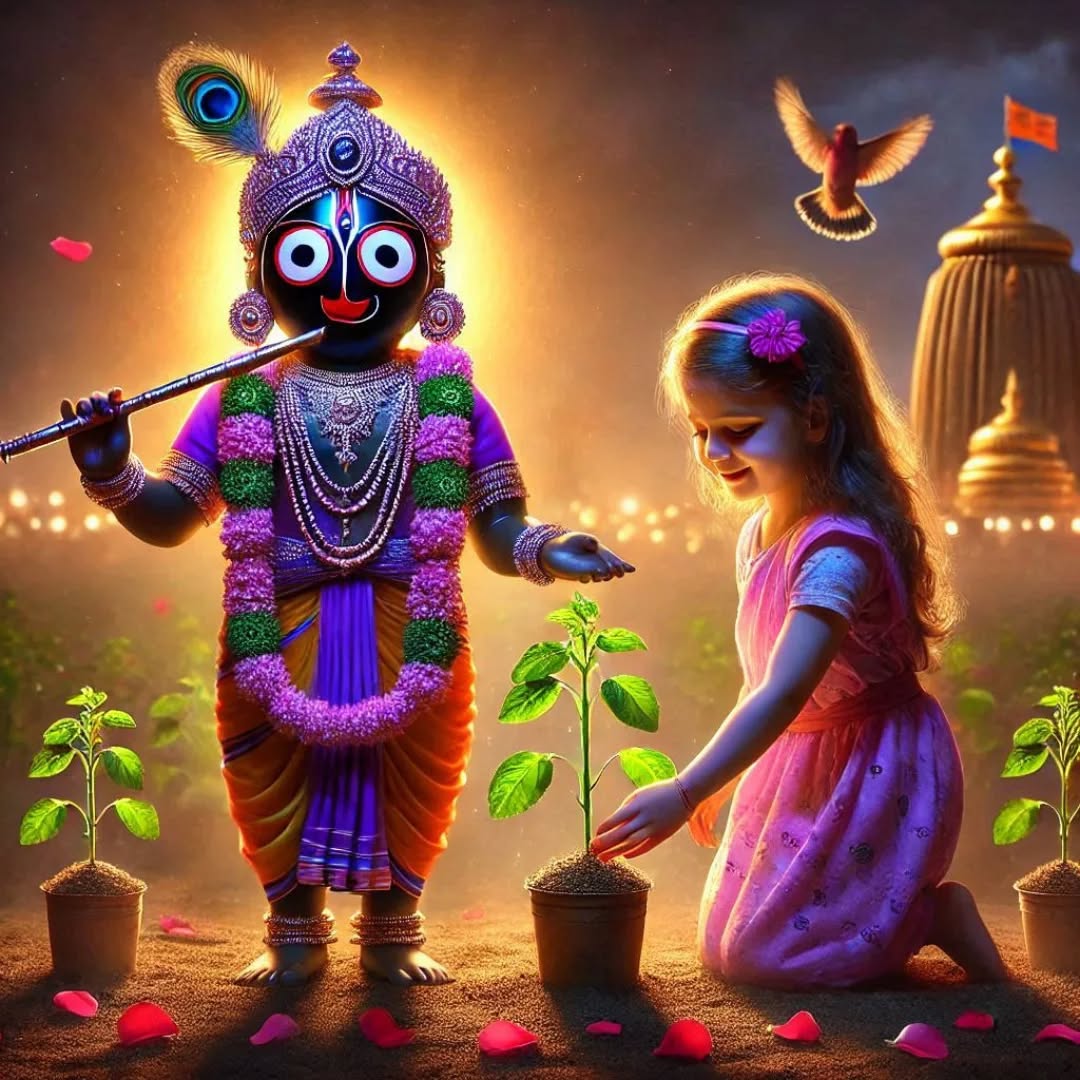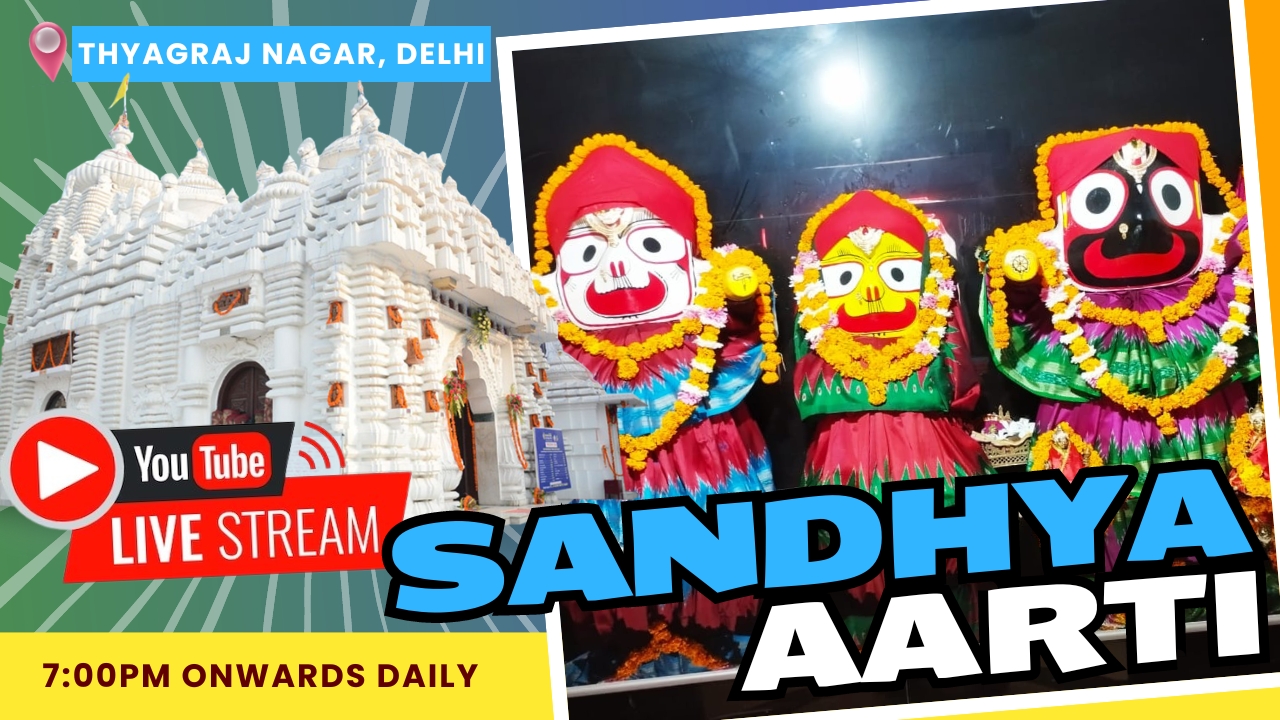Starts in
February 8, 2025 12:00 am
Celebration of Bhaumi Ekadashi at Shri Jagannath Mandir, Thyagraj Nagar, Delhi
Bhaumi Ekadashi, also known as Bhishma Ekadashi or Jaya Ekadashi, is a significant day in the Hindu calendar dedicated to Lord Vishnu. Celebrated on the eleventh day (Ekadashi) of the Shukla Paksha (waxing phase of the moon) in the month of Magha, this day holds immense spiritual importance for devotees. At Shri Jagannath Mandir in Thyagraj Nagar, Delhi, the observance of Bhaumi Ekadashi is marked by devotion, fasting, and special rituals.
Significance of Bhaumi Ekadashi:
Bhaumi Ekadashi is believed to grant liberation from sins and is considered highly auspicious for attaining spiritual merit. According to Hindu mythology, observing this Ekadashi with devotion leads to the blessings of Lord Vishnu, ensuring prosperity, peace, and moksha (salvation). This Ekadashi is also associated with the epic Mahabharata, as it is said that Bhishma Pitamah, one of the revered characters, narrated the Vishnu Sahasranama (a thousand names of Lord Vishnu) on this day.
Preparations and Rituals:
The preparations for Bhaumi Ekadashi at Shri Jagannath Mandir begin days in advance. The temple is thoroughly cleaned and decorated with flowers, garlands, and lights, creating a serene and holy atmosphere. Devotees from all over Delhi gather at the temple, dressed in traditional attire, ready to partake in the special rituals and prayers.
Fasting and Devotional Practices:
Fasting is a significant aspect of Bhaumi Ekadashi. Devotees observe a strict fast, abstaining from grains, cereals, and certain vegetables. Many opt for a waterless fast or consume only fruits and milk. The fast is observed with the intent of purifying the mind and body and seeking the blessings of Lord Vishnu.
Throughout the day, the temple resounds with the chanting of bhajans (devotional songs) and the recitation of the Vishnu Sahasranama. The air is filled with the sound of conch shells and bells, enhancing the spiritual ambiance. Devotees engage in continuous prayers, meditating on the virtues and glory of Lord Vishnu.
Special Puja and Homa:
A special puja is performed on Bhaumi Ekadashi, where the idol of Lord Jagannath is adorned with beautiful clothes and jewelry. The priests conduct an elaborate ritual, starting with the abhisheka (ritualistic bathing) of the deity with sacred substances such as milk, honey, ghee, and sandalwood paste. This is followed by the offering of flowers, incense, and aarti (waving of lighted lamps).
One of the highlights of the celebration is the homa (sacred fire ritual), where ghee, grains, and herbs are offered into the holy fire while chanting Vedic mantras. This ritual is believed to purify the environment and invoke divine blessings for the well-being of the devotees.
Distribution of Prasad:
After the puja and homa, prasad (sacred food offering) is distributed to all the devotees. The prasad typically includes fruits, sweets, and dishes made without grains, adhering to the fasting rules of Ekadashi. Receiving prasad is considered highly auspicious and a symbol of the Lord’s grace.
Evening Kirtan and Discourse:
In the evening, a special kirtan (devotional singing) session is organized, where devotees sing the praises of Lord Vishnu with fervor and devotion. This is followed by a discourse by learned priests or scholars, who narrate the significance of Bhaumi Ekadashi and the stories associated with it, deepening the spiritual understanding of the devotees.
The celebration of Bhaumi Ekadashi at Shri Jagannath Mandir in Thyagraj Nagar is a profound spiritual experience. It not only strengthens the devotees’ faith in Lord Vishnu but also fosters a sense of community and collective devotion, reinforcing the timeless values of Hindu spirituality and tradition.


